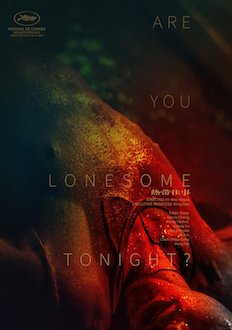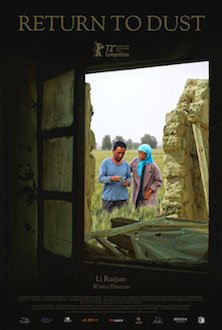Directed by Stephen Chow
Country: China
Stephen Chow’s zany extravaganza, “The Mermaid”, a massive success in China, presents magical powers that have two possible and distinct effects on a viewer. Due to a clownish temper, this screwball fairy tale with a strong ecological message might irritate those who have no patience for fantasies, dreams, or absurdities. On the other hand, it might work as a buoyant amusement for the ones who, more flexible, don’t mind being pelted with an outlandish storyline, ludicrous jokes, and a general sense of cheesiness that quickly spreads over the pores of your skin.
Shan (Yun Lin) is a beautiful mermaid who, secretly and for many years, lives with her people in the Green Gulf, a formerly protected wildlife area, bought by the womanizer tycoon, Liu Xuan (Chao Deng), who, like Bruce Lee, let himself go with the flow. The invincible and yet lonely, Xuan, who holds a sea reclamation permit, uses powerful sonar technology that drove away all the dolphins and keeps provoking ruinous sickness in the mermaids that inhabit the place in fear of being hunted down by the humans, as always had happened. Trapped and hurt, they manage to find a safe yet small place in an abandoned shipwreck where, together with a hybrid Octopus warrior (Show Luo), the last of his kind, they start planning a revenge. The strategy consists in sending the alluring Shan, who learned to hide her fins and walk in shoes, to seduce the untouchable Xuan, a man of fake mustache and attitudes. The latter openly admits he cannot resist an attractive woman, despite maintaining a deceptive relationship with the manipulative Ruolan (Yuqi Zhang), who sees him as a lowlife and whose only interests are power and money.
The plan goes pretty well at first, but the inevitable happens. After spending a wonderful time together, having a relaxed conversation and eating innumerable roasted chickens, the couple falls in love. He unexpectedly gets sentimental about the chicken, which reminds him his late father, and becomes almost incredulous when she demonstrates not to be interested in his money, throwing a one million dollar check into the fire. In turn, she realizes he’s not so bad as she had thought and starts to understand that his actions are a reflex of a tiresome loneliness and permanent dissatisfaction with his life. As you can imagine, after this enchanting encounter, everything becomes pretty dramatic.
There are a few spectacular chases where Shan sees her life threatened by the troops commanded by the glamorous villain, Ruolan, and the avid Westerner mermaid-hunter, George (Ivan Kotik), who after all shows considerably more decency than she does. On the most memorable scene, the fearless Octopus sacrifices his own tentacles, which become gourmet food for the impassive Xuan, who becomes more conscious about the environment as his heart beats faster for his dear mermaid.
Mr. Chow, who has been conquering both local and foreign audiences with his facetious adventures (“Journey to the West”, “Kung Fu Hustle”), worked with other seven screenwriters on the fairy tale “The Little Mermaid” by Hans Christian Andersen, which served as a disengaged inspiration.
He builds a visually intense fantasy composed of vivid settings and edgy special effects. It can be described as half hilarious, half goofy.
To be honest, “The Mermaid” is a pretty forgettable movie, but I must admit I was fairly entertained for large periods of its loony time.












































